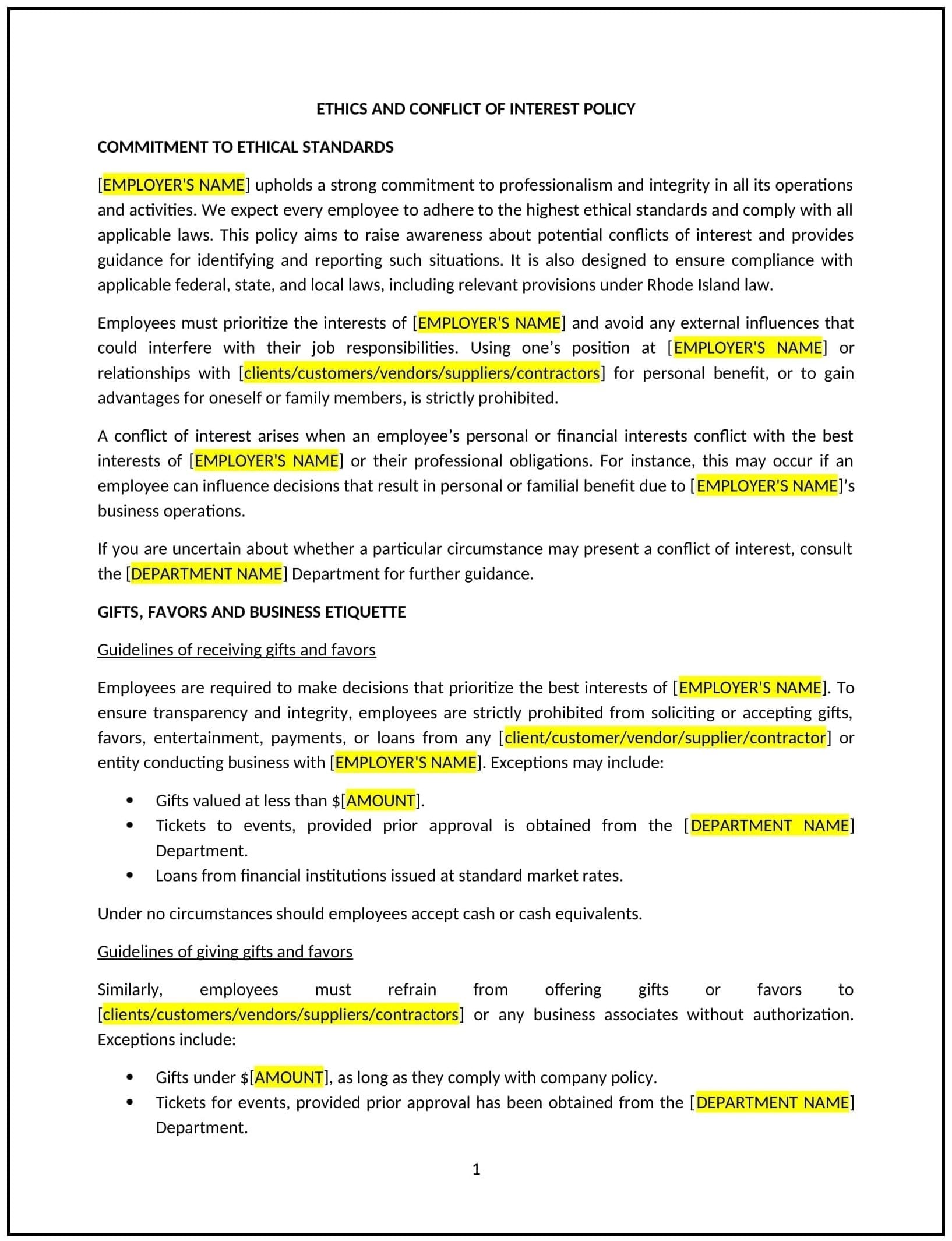Ethics and conflict of interest policy (Rhode Island): Free template
Got contracts to review? While you're here for policies, let Cobrief make contract review effortless—start your free review now.

Customize this template for free
Ethics and conflict of interest policy (Rhode Island)
This ethics and conflict of interest policy is designed to help Rhode Island businesses maintain integrity and transparency in the workplace. It outlines guidelines for ethical behavior, identifying conflicts of interest, and addressing potential issues.
By adopting this policy, businesses can build trust, ensure compliance with ethical standards, and align with best practices for workplace integrity.
How to use this ethics and conflict of interest policy (Rhode Island)
- Define ethical standards: Specify expectations for honesty, transparency, and professionalism.
- Identify conflicts of interest: Provide examples of situations that may create conflicts, such as personal relationships or financial interests.
- Establish reporting procedures: Outline steps for employees to report potential conflicts or ethical violations.
- Train employees: Educate staff on the policy and its importance.
- Review and update: Assess the policy annually to ensure it aligns with evolving business needs and ethical standards.
Benefits of using this ethics and conflict of interest policy (Rhode Island)
This policy offers several advantages for Rhode Island businesses:
- Builds trust: Demonstrates a commitment to ethical behavior and transparency.
- Reduces risks: Minimizes the potential for conflicts of interest or ethical violations.
- Enhances reputation: Positions the business as a trustworthy and responsible organization.
- Ensures compliance: Aligns with industry standards and legal requirements for ethical conduct.
- Aligns with best practices: Supports adherence to workplace integrity standards.
Tips for using this ethics and conflict of interest policy (Rhode Island)
- Communicate the policy: Share the policy with employees and include it in the employee handbook.
- Provide training: Educate managers and staff on identifying and addressing conflicts of interest.
- Monitor compliance: Regularly review workplace behavior to ensure adherence to the policy.
- Address issues promptly: Take corrective action if conflicts of interest or ethical violations are reported.
- Update regularly: Assess the policy annually to ensure it aligns with evolving business needs and ethical standards.